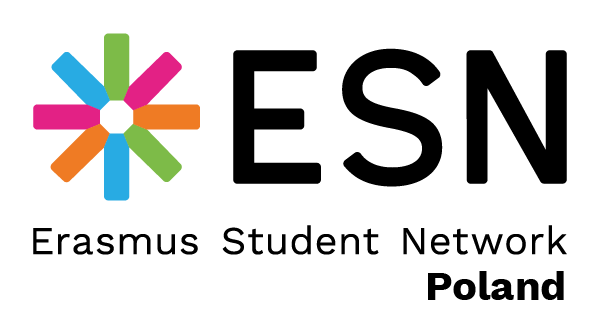From the 6th to the 9th of October, I had the pleasure to represent ESN Poland at the Business and Finance Conference in Brussels. There was about 30 participants - Partnership Managers, Financers, members of FICO and a representative of the ExchangeAbility International Team.
The agenda started on Friday, when Hugo, the Partnership Manager of ESN AISBL presented the cooperation with international partners at Microsofts’ Innovation Centre. The next subject was the operation of ESNcard.org and the tasks of upgrading the performance of the site.
After Hugos’ presentation, ESN Switzerland and ESN France presented their budgets. Following a short break, we had a visit from the representative of Hostelling International, to talk about the cooperation with ESN. The last part of the agenda in Microsofts’ building was the workshop “Excel for everyone”, ran by Joao Carlon of ESN Italy.
After the workshop, we went to visit the new ESN Office, which neighbours the European Council and European Commission. We were even present for the first document to be printed in the new office ;)
The final point on the agenda was a visit to the European Commission, where an employee of the Directorate-Generals Office for Financial Stability, Financial Services and Capital Markets Union explained to us the operations of the European Commission in response to the financial crisis.
On Saturday, we started with a meeting with a spokeswoman of Uniplaces, who talked about the cooperation and possibilities of development. Next, the countries presented their partnerships. The presentations were ran by ESN Germany, ESN Lithuania, ESN Switzerland, ESN The Netherlands, ESN Poland and ESN Italy.
After the presentation, Jovana - the Treasurer of ESN International - presented the financial situation of ESN International. There were discussions of financial sources and grants which were awarded bny the European Comission, and further possibilties of potential financing. During the discussion, we thought about how we could boost the income of ESN AISBL.
In the afternoon, Jovana and Hugo spoke about the webshop and its’ development, and how it can best serve the sections. During the discussion, we spoke about connecting it with ESNcard.org, logistical issues, the items available, possible savings and additional earnings.
Connected to the webshop was the subject “The new merchandise”. Jovana and Hugo spoke about the search of a new producer of gadgets and showed the new jacket model. The discussion focused on the proposed price range in which the gadgets would be sold, and the values on which the manufacturer is aiming for.You can expect to see information about the new products on our webshop very soon!
We finished the day with budget presentations from ESN Italy, ESN Germany, ESN Portugal and ESN Austria, as well as presentations about partners of ESN Romania, ESN Belgium and ESN Finland.
We started Sunday with the final presentations of national partners of ESN Austria, ESN France, ESN Czech Republic, ESN Greece, ESN Portugal, ESN Estonia and ESN Finland.
The next point was discussion about Travel Fund - a document outlining the rules of returning the costs of travel to statutory trips of ESN AISBL. We discussed about whether and what should be changed in the document, and if we would need to change the rules regarding financing in the event of a delay in delivering the required documents.
The subject “How to support the smaller countries” focused on issues related with the change of rules of grant funds, or it’s size. We also discussed about the definition of a “small country” and the meaning of Network Care Team in the process.
Maria Samara, Project Coordinator ESNcard was next, discussing with us the project, our expectations, chances and threats. Evelina Petroca - the main chair of FICO, presented the work of the committee, after which we discussed in which way FICO could better support both on the local and national levels.
In the afternoon, Hugo ran the workshop “Creative Negotiation”, focusing on perfecting the skill of negotiation. The final workshop was with Joao Carlon, called “Why do we perform the audit and how”. Joao explained what an audit actually is against how it is often perceived, and in what way it could be constructive.
The whole trip was summed up in the feedback session, during which the participants agreed that one of the most valuable elements was the possibility of exchanging good practices and information. We had the chance to learn the characteristics of countries and ways in which they plan their expenses and which partners they gain, how, and profits which they gain from the cooperation. Also valuable was the inclusion of BFC in the strategic discussions about ESN International’s finances, development, and the chances and threats for the network.
Author: Bartosz Seidel, Project Manager ESN Poland
Translation: Anthony Lowrey, PR Committee ESN Poland
